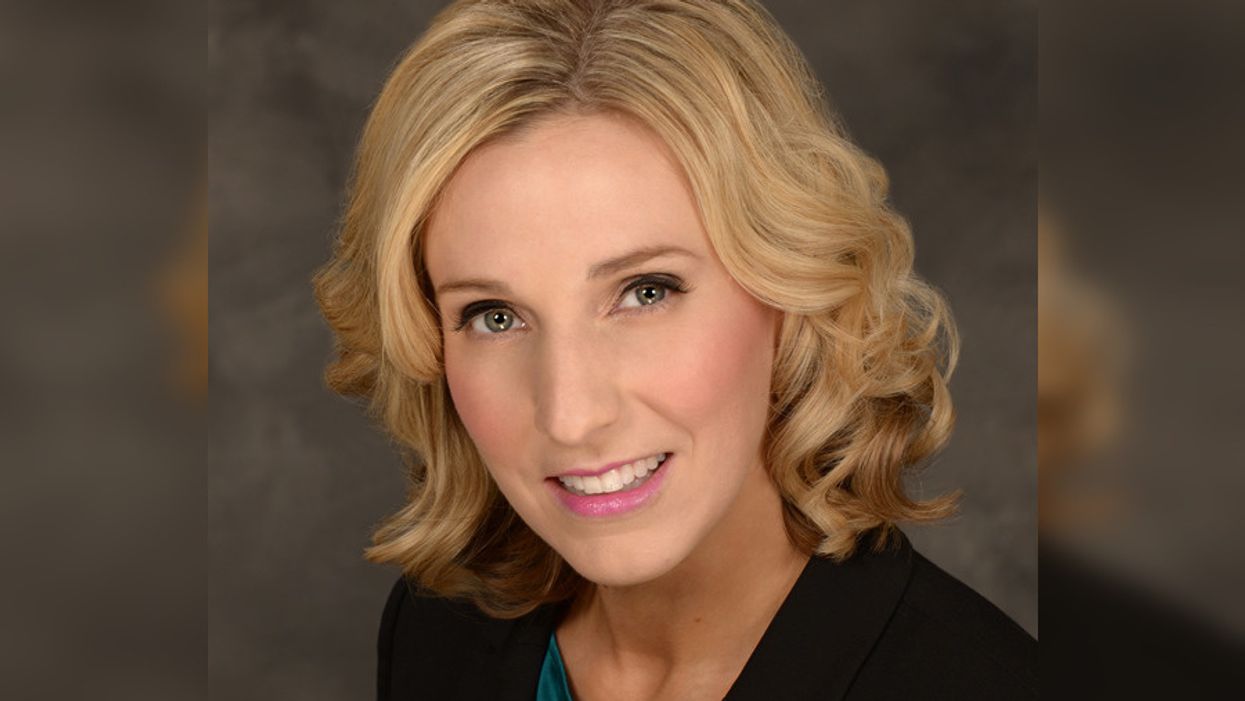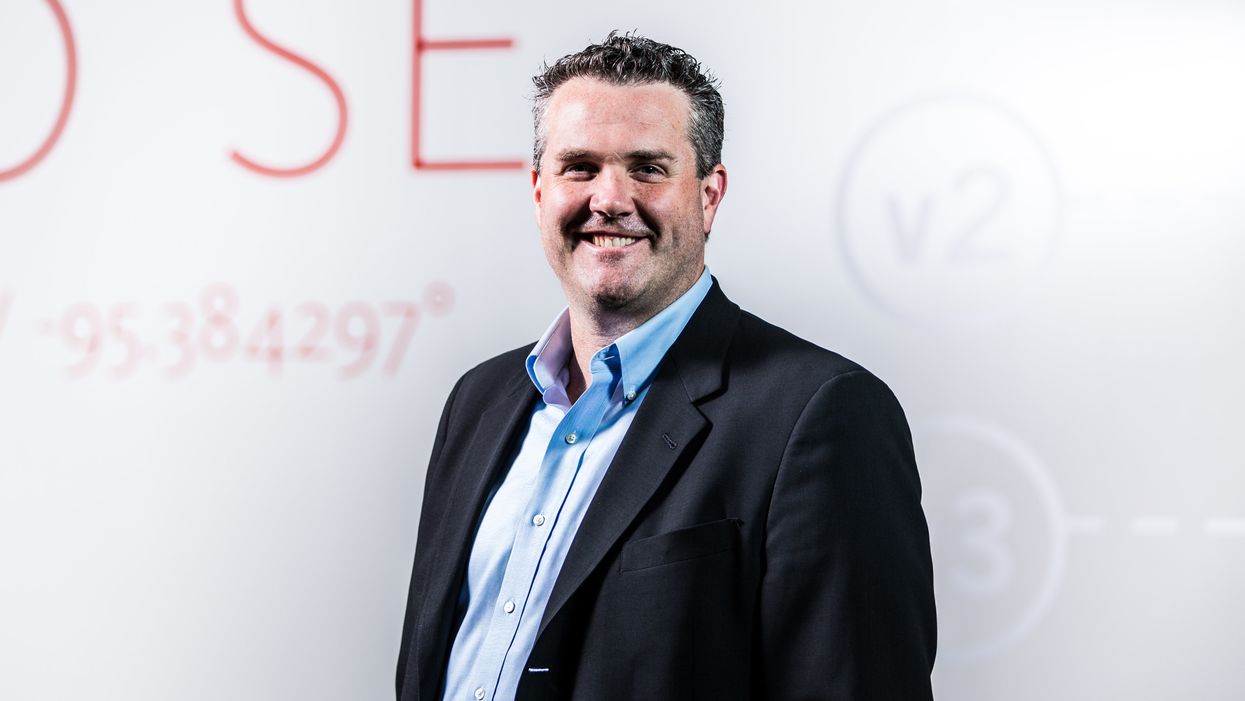Editor's note: Halvorsen reportedly left his position at TMC on December 13, 2018. The original article as it first published is below.
Erik Halvorsen describes himself as an impatient guy, which is why, rather than wait for Houston's medical startup culture to evolve to meet Boston's or Silicon Valley's, he's taking steps to change it now.
"The reality is Houston is not Boston or Silicon Valley, and it comes down to a couple things: access to capital and the pool of entrepreneurs running around," says Halvorsen, director of the TMC Innovation Institute.
But the Texas Medical Center is looking to change that in the health care sector with TMCx, its accelerator.
TMCx was recently given silver recognition from the Seed Accelerator Rankings Project. While it's an impressive feat, Halvorsen envisions TMCx rise through the ranks of that award over the next few years.
"For us, we're kind of competing with ourselves to be as good as we possibly can be."
TMCx graduates around 20 companies per cohort, and there's two cohorts each year — one focused on medical devices, which just concluded with the Nov. 15 Demo Day, and the other, which is about to launch, focused on digital health.
InnovationMap: How did you get your start in your industry?
Erik Halvorsen: From as young as I can remember, I wanted to be a medical doctor. Fast forward, all through undergraduate, I was pre-med. Took the MCAT, scored in the 99 percentile, but when it came time to apply to medical school, I chose not to. I ended up applying to a "tweener program" at the Medical College of Virginia in Richmond, and they had these master's programs where you would take all the first year's classes of medical school and do research in a particular discipline. I was doing research in biochemistry. I go through that whole program, and then I still wasn't sure I wanted to be a doctor or go to medical school, but I liked research. I got offered a full scholarship to do a Ph.D. program at the University of Virginia, but I didn't love being in the lab. I found an ad somewhere about an internship at the UVA Patent Foundation. It was basically taking early stage innovation, discoveries, and IP out of universities and medical centers and turning them into products, and what that's look like — whether it was startup companies or corporate partners, and that's when the lightbulb went off for me. I was really good at speaking the science to the business side, and then speaking the business and finance side to the scientists and doctors. The rest of my career became some version of playing in that in between space in helping translate ideas to ultimately get to the big companies and ultimately in the market to help patients.
IM: In your role at TMCx, you oversee the accelerator and what companies make it in. What does TMCx look for in its cohort?
EH: What we're looking for is what we think is cutting edge, and truly innovative addressing an unmet need. We consult with a lot of the hospitals here. I ask them what's keeping them up at night. That list helps me select the companies. If I see companies that are making cool products that meet one of these unmet needs in TMC, then I know that company will get traction if they were in town, and that's important.
IM: What's the process of picking the companies?
EH: We'll get 200 to 300 applications and interview about 75 companies for the 20 to 25 spots. When we interview, we get at what is their understanding of the current practice, competitive landscape, etc. It's also a good chance for us to glean a little bit of the personality of the teams we're bringing in. We learned a long time ago that we don't want to work with assholes. We go a long way to find the people who are in it for the right reasons. You have to be really smart and confident — you've got to be pretty self confident if you're think you're bringing a solution to a problem that no one has success doing before. But it has to be self confidence without arrogance.
IM: What's the economic impact of the accelerator?
EH: I think we're clearly a major piece of the Houston ecosystem. JLabs has 50 companies under their roof, and when you add TMCx and the coworking space, we have about 100 health care companies under our roof. When you think about the companies that came through our program, that's a total of 250 companies. Those companies are important to the ecosystem because they are out there telling the world about Texas, the medical center, and Houston. Their word of mouth is the reason we see the volume and the quality of the applications going up each year. A lot of our companies choose to stay in Houston.
IM: What sets TMCx apart from its competition?
EH: We don't take equity. That sets us apart. I think this is a major reason we've been able to attract companies that are more advanced — still startups, just far down the path. Those of the kinds of companies who would never consider an accelerator program that asks them to give up equity.
IM: Where does Houston's innovation sector have room for improvement?
EH: One of the things that I knew moving to Houston from Boston was that the investment environment for life sciences wasn't as robust as Boston. I knew coming in that was going to be a bit of an issue. I also felt like we had the raw materials, that if we ran our program the right way and attracted those companies we needed, the dollars would flow. And that's really been the case.
Another area we have to grow is international collaborations. We already have a high percentage of international applicants, but now we're trying to build these biobridges to other ecosystems where we can collaborate on two areas: research and innovation commercialization.
IM: What all are you excited about seeing from TMC3?
EH: I think it's really unique to Houston to bring all of these elements together in what I think is a well-designed manner. It will really transform the city. You're going to have big industry down there — a lot of those conversations are still ongoing. I mean, 116,000 medical employees and 10 million patients a year, these big health care companies want to be close to that.
This will be another way we can accelerate what we learn in the lab to treatment for patients. I'm really excited about it, and I think the startup companies we continue to bring to Houston and nurture in the TMC Innovation Institute will be a major part of bridging that gap between research and discovery to the big companies that will bring that product to market.
IM: What advice do you have for health-related startup companies?
EH: There are plenty of studies that have been done that have shown that the main reason companies fail is that there's no market for their product — and that's industry agnostic, but it's definitely true in health care. What we spend a lot of time in our program is helping the companies evaluate that and understand what their product market is — and really validating that people are going to use it and, more importantly, people are going to pay for it.
My advice would be not to just assume there's a need. Go figure out how to validate that it's a better technology and that people will use it and buy it.
------
Portions of this interview have been edited.









 Apple doubles down on Houston with new production facility, training center Photo courtesy Apple.
Apple doubles down on Houston with new production facility, training center Photo courtesy Apple.